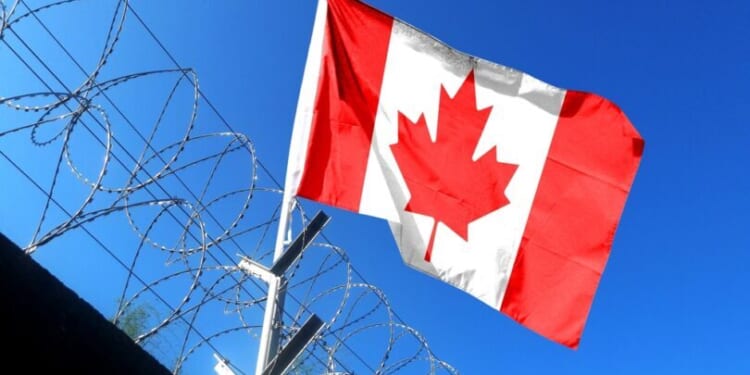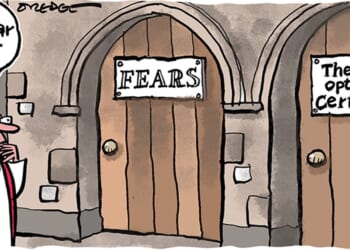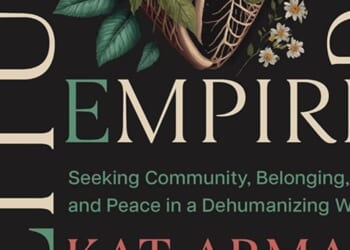(LifeSiteNews) — A string of recent stories highlights the aggressive expansion of Canada’s culture of death, from a frail woman with dementia being euthanized in Ontario, a “secret euthanasia house” being set up in British Columbia, and Quebec proposing a “law of all laws” that would enshrine the right to both abortion and euthanasia.
The first story was revealed in a recent report from the Office of the Ontario Chief Coroner’s MAID Death Review Committee. The National Post reported that a “frail woman in her late 80s with dementia” was euthanized “after a family member brought forward a request for assisted death.” The elderly woman was given a lethal injection after a euthanasia provider “deemed the woman had given her final expressed consent to proceed, based on her ability to repeat a question and squeeze the provider’s hand.”
The case was one of 103 listed in the death review committee’s report where dementia was cited as the primary source of suffering that made the patient eligible. The committee observed that these cases introduce many new factors that have must be navigated:
MAID requests involving dementia require additional considerations for interpreting eligibility criteria, assessing capacity and ensuring informed consent. The reported suffering of persons with dementia was higher for experiences such as ‘loss of dignity,’ ‘being a perceived burden on family, friends or caregivers,’ ’emotional distress/anxiety/fear/existential suffering’ and ‘loss of independence’ compared to persons with other CODs (causes of death).
It is significant that the elderly woman who was euthanized had a family member request the lethal injection on her behalf; the report noted that she needed assistance for all basic tasks, including eating. “At one point during her admission, Mrs. 6F reportedly expressed a ‘wish to die’ to a family member,” the report stated. “This was communicated to her care team, who initiated a referral for MAID. Mrs. 6F’s expression of a wish to die was interpreted by a family member as a potential request for MAID.”
READ: Disabled Canadians increasingly under pressure to opt for euthanasia during routine doctor visits
Despite that initial statement—which was not necessarily a request, but “interpreted as one”—the woman decided not to be euthanized and was moved into long-term care. Four months later, “a family member initiated a re-referral for MAID.” The report noted that her suffering was exacerbated by her “dependency and cognitive decline.” As the Post summarized it: “The MAID provider assessed her eligibility over a single interaction, and with a family member present.” The provider stated that it was “clear she did not want to continue to live as she (was).”
The woman, however, could not even communicate clearly. She could not sign the consent form, despite an attempt; it is unclear if she knew what she was signing. The report noted that her repetition of a question from the provider and squeezing a hand “is not an indication of understanding or appreciating a healthcare decision,” especially considering her cognitive capabilities, and that the dependence on a family member illustrated “potential opportunity for undue influence.” The report emphasized that her consent was in question for multiple reasons. She was euthanized, nonetheless.
The BC Catholic, meanwhile, reported that the Toronto nonprofit “MAIDHouse” has opened a secret euthanasia facility in BC’s capital of Victoria (a similar facility was opened in Toronto in 2021). People come to MAID Houses on the day of their death to be killed; these facilities receive government funding and are recommended resources for the suffering. Victoria is already considered the “euthanasia capital of the world.” As the BC Catholic noted: “The furtive establishment of a standalone, private euthanasia house in Victoria has sparked criticism from pro-lifers and exposed yet another way in which medical assistance in dying is spreading throughout the country.”
The most dramatic steps to permanently entrench the culture of death into the social fabric are unfolding in Quebec. On October 9, Justice Minister Simon Jolin-Barrette presented the “Quebec Constitutional Act, 2025” to the Québec National Assembly. The bill would amend the Quebec Charter of Human Rights and Freedoms—which governs all provincial laws—to make both abortion and euthanasia fundamental rights. The bills are unprecedented in Canada, and come months after former Quebec politicians openly discussed euthanizing a 24-year-old woman with disabilities.
Canadians who wish to push back against this growing culture of death should be aware that there are pressing opportunities to do so. MPs Tamara Jansen and Andrew Lawton are calling for support for Bill C-218, the “Right to Recover” Act, which would ban euthanasia for those suffering solely for mental illness. Medical professionals seeking assistance in navigating the multiplying ethical dilemmas unfolding in institutions across the country should contact Canadian Physicians for Life, which is at the forefront of many of these struggles.
There is growing international awareness that Canada is becoming an ugly cautionary tale; even the United Nations has condemned us and called for a course change. The time to push back and get involved is now.


















